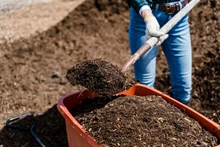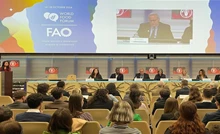
Water, a fundamental element of life, is not just a resource but a basis of civilizations, impacting public health, prosperity, and global stability. Whether flowing in rivers, lakes, or the ocean, water is essential to ecosystems, agriculture, industry, and human well-being. However, its scarcity, pollution, and unequal distribution can lead to conflicts and tensions among communities and nations. Currently, approximately 2.2 billion people lack access to clean drinking water which is a global challenge.
World Water Day is an annual event celebrated on March 22, dedicated to advocating for the sustainable management of freshwater resources. This international campaign supported by the UN highlights the importance of freshwater and the need for equitable access to clean water for all people, regardless of their geographical location or socio-economic status. Read On.
World Water Day: History
World Water Day, first proposed at the 1992 United Nations Conference on Environment and Development (UNCED) in Rio de Janeiro, serves as a platform to raise awareness about the importance of freshwater and advocate for the sustainable management of water resources. Since then, it has been observed annually to raise awareness about the importance of freshwater conservation, management, and sustainable development. It became a movement, engaging governments, organizations, and individuals worldwide in addressing water-related challenges.
Significance:
World Water Day is a platform to address the global water crisis and its far-reaching implications. Access to clean water is a fundamental human right essential for health, food security, economic development, and environmental sustainability. However, millions of people worldwide still lack access to safe drinking water and adequate sanitation facilities, leading to waterborne diseases, poverty, and environmental degradation.
World Water Day 2024 Theme:
Each year, World Water Day is centered around a specific theme to focus attention on key water-related issues. Themes in recent years have included “Accelerating Change," “Water and Climate Change," "Water and Sustainable Development," and "Nature-Based Solutions for Water." These themes provide a framework for advocacy, education, and action to address critical challenges affecting freshwater resources globally.
The theme of World Water Day 2024 is "Water for Peace," which highlights the role of water cooperation in promoting harmony, prosperity, and resilience to shared challenges. By prioritizing collaboration over competition, countries can build trust, enhance stability, and mitigate the risk of conflicts arising from water-related disputes. Recognizing water as a common resource that transcends political boundaries is essential for achieving sustainable development and peace.
Water, essential for life and livelihoods, can also be a source of tension and conflict when scarce, polluted, or inequitably distributed. More than 3 billion people worldwide depend on water that crosses national borders, emphasizing the importance of transboundary water management. However, despite its significance, only 24 countries have cooperation agreements for all their shared water, underscoring the need for greater collaboration.
World Water Day Facts
-
Approximately 2.2 billion people still lack access to safely managed drinking water, with 115 million relying on surface water for their daily needs. (WHO/UNICEF, 2023)
-
Roughly half of the world's population experiences severe water scarcity for at least part of the year, highlighting the urgency of addressing water management issues. (IPCC, 2022).
-
Water-related disasters, including floods and droughts, account for 70% of all deaths related to natural disasters, underscoring the human toll of water-related challenges. (World Bank, 2022).
-
Transboundary waters account for 60% of the world's freshwater flows, emphasizing the importance of cooperation in managing shared water resources. (UN-Water, 2023).
-
Did you Know? About 75% of the human brain is composed of water, mirroring the astonishing fact that 75% of a living tree is also comprised of this essential element.
Water Day Celebration Ideas
-
Organize community clean-up events to remove litter and pollutants from rivers, lakes, and coastal areas, improving water quality and ecosystem health.
-
Host educational workshops and seminars to raise awareness about water conservation, sustainable water management practices, and the importance of water stewardship.
-
Support local initiatives and organizations working to provide clean water and sanitation services to underserved communities, both domestically and internationally.
-
Encourage individuals and businesses to adopt water-saving practices, such as fixing leaks, using water-efficient appliances, and implementing rainwater harvesting systems.
-
Advocate for policy changes and investments in water infrastructure, watershed protection, and drought-resistant agriculture to ensure long-term water security and resilience.
As we celebrate World Water Day, let us recognize the critical role of water in shaping peace, prosperity, and sustainability. By fostering collaboration, conserving resources, and advocating for equitable access, we can build a more stable and prosperous future for all. Water is not merely a commodity but a fundamental human right, essential for life and integral to every aspect of our existence. In uniting around water, we lay the foundations for a more peaceful and sustainable world for generations to come.
"The World Water Day and the situation in Bengaluru serve as a sobering reminder of how important, yet undervalued, a resource water is. We all knew the impact of climate change would be felt through water crises; however, now more than ever, we are living that reality. I recall the well in my childhood home – how valued an asset it was in our household. As I grew up, the well dried up, and makeshift tanks provided temporary relief. Today, though, the sight of tanker trucks delivering water is as common as seeing food delivery boys around the city. As a perpetual optimist, I dream of a future where water is a treasured asset, and the term "shortage" becomes completely unassociated with water. At FluxGen, we feel privileged to work on making this a possibility. We have begun this mission by working with industries and smart cities to help them optimize their water consumption. However, we see the sky as the limit. We want to do all it takes to build a water-positive future."- Ganesh Shankar, Founder & CEO, Fluxgen
By raising awareness, promoting education, and fostering collective action, we can work together to address the global water crisis and achieve the Sustainable Development Goal of ensuring universal access to clean water and sanitation by 2030. Let us commit to safeguarding this precious resource and building a more sustainable and equitable world for all!
When we cooperate on water, we send a positive ripple effect through society.
— UN-Water (@UN_Water) March 18, 2024
Cooperation on water paves the way for cooperation on all shared challenges.
Water and peace go hand in hand.#WorldWaterDay https://t.co/JeZs0DLzXS pic.twitter.com/OJsCeAFlJA










